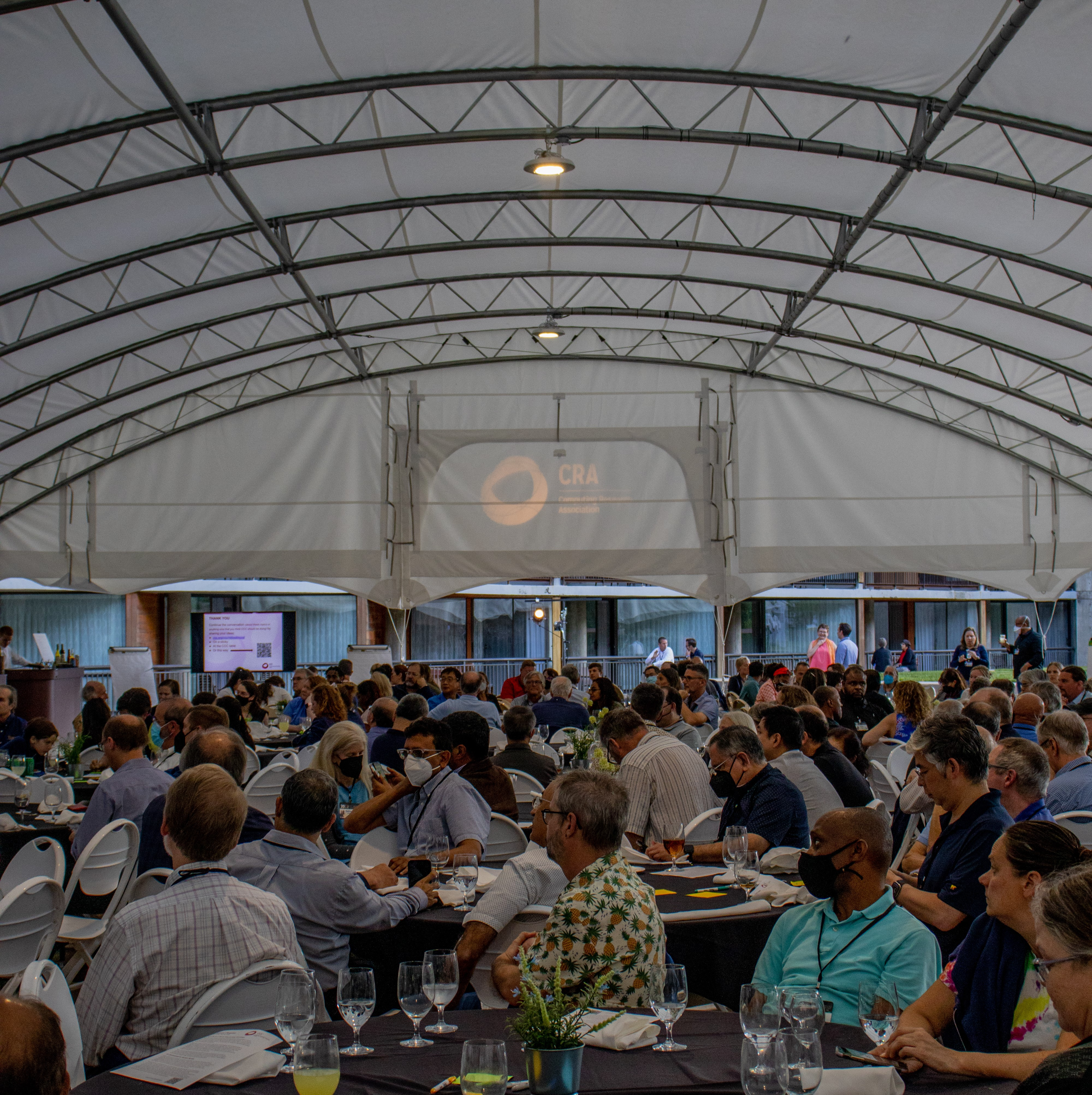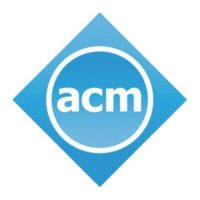CRA Update: Keeping you in the know
 The 2022 CRA Conference at Snowbird provided an excellent opportunity to hear directly from our membership on a number of topics. With CRA’s new strategic plan and new Executive Director, the 2022 CRA Conference was a good time to pause and think about how we might improve. CRA learned from our members that there is a desire for more communication and involvement in agenda setting, increased transparency about our processes, and interest in re-evaluating the Board structure. Thank you for all the thoughtful ideas shared at CRA’s flagship conference! This column provides a summary of the input received, and then concludes with “What’s Next?”.
The 2022 CRA Conference at Snowbird provided an excellent opportunity to hear directly from our membership on a number of topics. With CRA’s new strategic plan and new Executive Director, the 2022 CRA Conference was a good time to pause and think about how we might improve. CRA learned from our members that there is a desire for more communication and involvement in agenda setting, increased transparency about our processes, and interest in re-evaluating the Board structure. Thank you for all the thoughtful ideas shared at CRA’s flagship conference! This column provides a summary of the input received, and then concludes with “What’s Next?”.
As part of our efforts to increase communications, we welcome you to this CRA Update: Keeping you in the know column. For involvement in CRA activities, we will begin (on an annual basis) requesting nominations (self-nominations are welcome!) from the computing research community to participate in various CRA activities. We request you share the following form with anyone in your institution who might be interested in getting involved in CRA’s activities this academic year (though June 30th): cra.org/interest-form (Deadline: September 30th, 2022)
In the following, we synthesize feedback received from TWO of the THREE opportunities to provide feedback during the opening plenary “CRA: Looking Forward” at the 2022 CRA Conference at Snowbird. As a reminder, the feedback opportunities were:
- CRA’s new Executive Director Tracy Camp shared her vision for where CRA is headed for both the long- and-short-term, and then asked attendees: “What can/should CRA do for research community members, when we consider different points of one’s career?” The feedback received from this question will be shared in a future Keeping you in the know column.
- Former CRA Board Chair Ellen Zegura described the strategic planning process and CRA’s current structure and governance, and then asked attendees for ideas on how to modify the board/committee structure and selection process in order to make CRA more effective and more representative of the computing community. The feedback received from this question is summarized next.
- CRA’s flagship conference has been held at Snowbird since its inception. While Snowbird is a gorgeous location, some attendees struggle with altitude sickness. Thus, a final opportunity for feedback concerned whether the CRA Conference should be held in different locations moving forward. The feedback received from this question is summarized in this column (before the What’s Next section).
Increase CRA Engagement & Participation
Many CRA members would like to have more ways to get involved in CRA’s activities, and some of the involvement offered should not require large time commitments. The Computing Community Consortium (CCC) Visioning Workshops are a good example of such an activity, which encourages involvement but does not require a major time investment.
We heard that awareness of CRA’s activities is lower with faculty that are not in leadership positions, partly because CRA’s structure is not understood well by individuals who are new to the organization or from outside groups. For example, committee name abbreviations, such as CRA-I and CRA-WP, are not descriptive of the work they do. There was also interest in broadening participation at CRA’s conference beyond department heads/chairs.
CRA members also expressed a desire for more inclusive leadership (e.g., MSI, teaching faculty, Board membership that better represents our field’s ethnic diversity), as well as crowdsourced agenda setting.
Transparency
There was a request to share the CRA Board meeting agenda and minutes with all CRA members, as well as providing opportunities for input. This could include public comment sessions before and after the Board meeting to increase engagement. It was also suggested that non-Board members could be invited to Board meetings for discussions on specific topics. In addition, some attendees suggested that Board meetings be open to all, broadcast publicly, and actions and decisions of the Board published on the website. Lastly, the Board election process is not clear to members.
Communication
There is a desire for improved communication on CRA initiatives with members as well as expanded audiences, particularly the key agenda topics for the Board of Directors and CCC. CRA members suggested conducting more online forums that allow two-way communication and reports on CRA successes, not just aspirations.
Finances
CRA members are interested in how membership fees are spent and suggested reduced costs for liberal arts institutions and small departments. There is the perception that dues are expensive and the cost is possibly excluding some institutions. In addition, CRA financial support could be more transparent.
Elections (Board Structure)
There was significant feedback on revising the structure of the Board and the election process. A few ideas suggested include:
- Segment election categories by university type (perhaps proportional to membership)
- Increase the number of appointed members on the Board
- Provide more information on candidates during the voting process (e.g., videos, statements, description on how the candidate increases diversity)
- Require diversity in the list of candidates (which would require a more active nominating committee)
- Encourage more minoritized individuals to self-nominate to the Board
- Reduce the term limit to six years, rather than nine
- Consider whether or not 24 at large Board members is the right number
- Publish data on past elections (candidates, winners, representation, etc.)
Elections (Voting)
There were also many comments on re-evaluating the current voting process for electing the Board. A few ideas suggested include:
- Eliminate the voting process and, instead,
- screen nominees for a minimal bar and then choose randomly
- curate selection from a qualified pool
- Anonymized review of candidates for voting (no name or picture, just words)
- Make information available on both the Board and membership composition at the time of voting (to increase visibility of disparity)
Location of the CRA Conference
CRA is considering moving the location of our flagship meeting which has traditionally been held at Snowbird, Utah since 1974 (CRA Conference at Snowbird). A contract to hold the 2024 CRA Conference at Snowbird is already in place, so this discussion is for the conference year 2026 and beyond. An overwhelming majority of those who responded were open to the idea of holding CRA’s conference at another location in subsequent years. There was also a preference for a location that is less remote, for a resort-style location, and for keeping Snowbird in the rotation of conference locations. When asked what the conference should be called, “CRA Conference” was the most frequently mentioned name. For the frequency of the meeting, slightly more people responded with keeping the conference every other year, while a large number preferred an annual meeting.
What’s Next?
Moving forward, this column, CRA Update: Keeping you in the know, will be a regular feature in Computing Research News. The key goal of this column is to improve communications, based on input suggested at the 2022 CRA Conference. The author of the CRA Update column will change, depending on the news that is being shared. This one was written by Shar Steed and Tracy Camp at CRA, with significant input by CRA’s Executive Committee.
In addition, on an annual basis, CRA will seek participation from members of the computing research community on various CRA activities that’ll occur that academic year (through June 30th) . As three examples for this year, we are looking for 2-4 people to join (1) the CRA Governance Working Group, which will discuss how CRA’s current Board structure might be improved, (2) the Socially Responsible Computing Working Group, which will define the scope and develop a strategy to establish CRA as a leader in promoting socially responsible computing research, and (3) the CRA Engagement Working Group, which will consider how CRA can (and should) be engaged in the different points of a computing researcher’s career.
All the opportunities for possible involvement are listed on the following form: cra.org/interest-form. Some of the activities listed do not require much time (one Zoom call!), while others will be more significant. See the form for the commitment level of any given activity. We encourage you to nominate yourself (due by September 30th!) for an activity of interest and/or share the form with others in your institution who might also be interested in getting involved in CRA activities. Once the committees / working groups are defined, we can then get to work, together, to improve CRA, the computing research community, and society as a whole.



